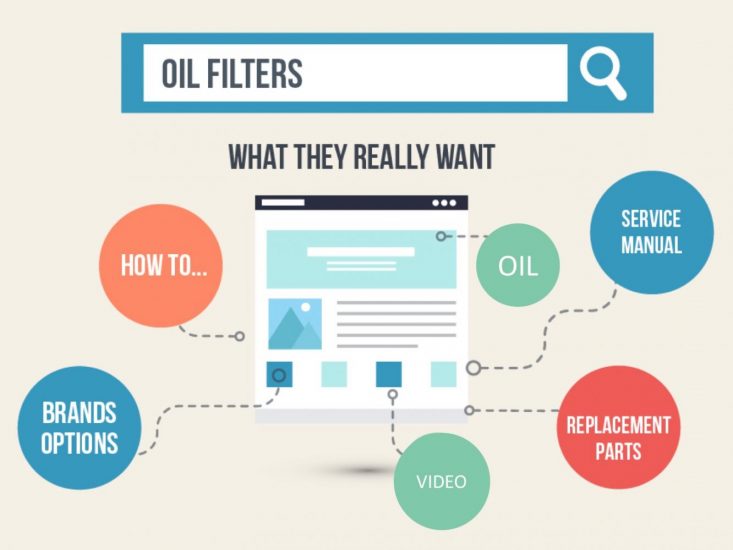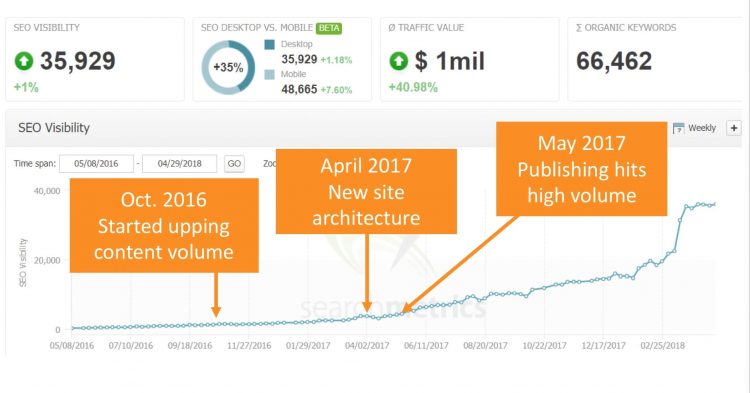This poor waiter is never going to satisfy all of Mark’s demands. But marketers can never give up on trying to satisfy the comprehensive needs of searchers.
In this episode of our popular Here’s Why digital marketing video series, Eric Enge reveals what comprehensive content is and why it is so key to SEO success today.
Don’t miss a single episode of Here’s Why. Click the subscribe button below to be notified via email each time a new video is published.
Resources
Transcript
Mark: Eric, you’ve been talking a lot lately about how Google is changing. Can you share a bit about that?
Eric: Sure. Over the past few years, much has actually been discussed about machine learning. Everybody talks about natural language processing, but what I see is improvements in matching of user queries to the actual user’s intent. As a result, we’re getting much more demand from Google for more complete content and, really, more content from sites.
Mark: Can you expand a bit on how Google is viewing content now?
Eric: Sure. First of all, they’re keenly aware of user satisfaction and how that impacts their business. When they satisfy more users, business goes up. When they don’t satisfy as many, business tends to go down.
By business, I mean revenue from clicks on ads. So now their algorithm is beginning to look for and try to measure that from sites. What they’re looking for is content experiences that tend to satisfy a much larger percentage of the users’ needs.
[Tweet “Google is looking for content experiences that tend to satisfy a much larger percentage of the users’ needs. Learn more at”]
I always like to talk about my example of oil filters. Someone searches on oil filters, and they arrive at your oil filters page. But there are many other things they’re probably looking for: oil could be one of the things that they’re looking for, or an oil filter wrench. Or maybe they’re going do something else with the car that day, so they want a windshield wiper or something like that.
So for a publisher, that means creating a much broader set of content. We’re taking a much broader view of what users might be looking for in your page.

How to Improve the Organic Performance of a Site
Mark: So what advice would you give for improving the organic performance of sites today?
Eric: There are four points that I’d like to make.
- Create in-depth content that addresses user needs. Think about a concept that Rand Fishkin called “task completion.” Help users complete their task, which is probably a lot broader than just the particular page they happen to be on at the moment.
- Don’t be afraid of long-form content. If that’s what’s required to address the user’s need, then that’s what you should do. There’s this myth out there that because of mobile, everybody wants everything in sound bites. But there are plenty of situations where people want in-depth information.
- Research a broad array of informational search terms related to your business, and create articles for all of those. Try to address a breadth of user needs because Google is looking for that.
- Think about volume. I happen to know one site that is growing by leaps and bounds right now. My estimate is that they’ve got 15 full time content creators working for them.
Here’s a chart of their search visibility according to SearchMetrics, how it’s evolved over time. Now, not everybody is going to be able to have 15 full time writers working on their stuff. That’s okay.
You don’t have to do that. But maybe, you should be thinking about expanding your efforts in this area.

Don’t miss a single episode of Here’s Why. Click the subscribe button below to be notified via email each time a new video is published.
See all of our Here’s Why Videos | Subscribe to our YouTube Channel

